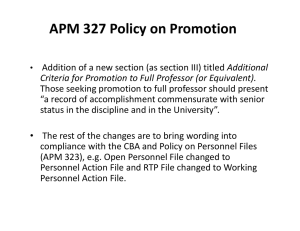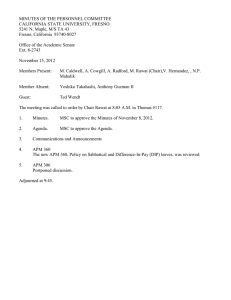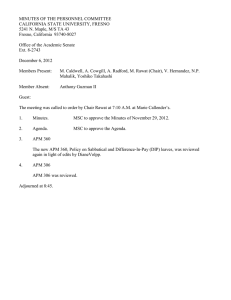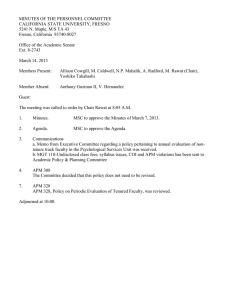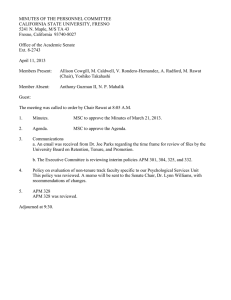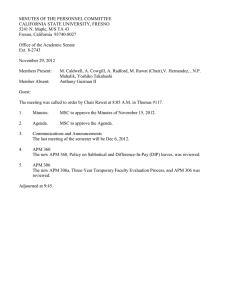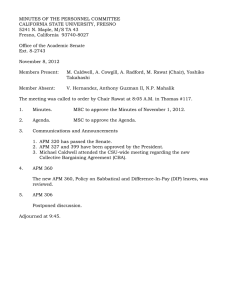236
advertisement
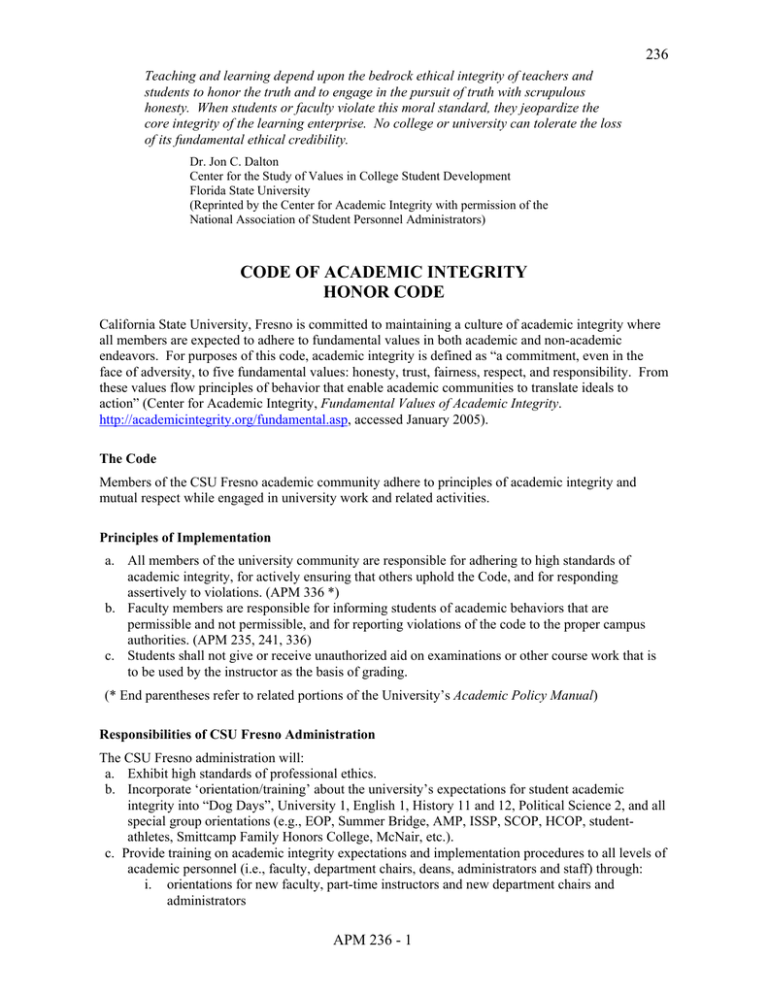
236 Teaching and learning depend upon the bedrock ethical integrity of teachers and students to honor the truth and to engage in the pursuit of truth with scrupulous honesty. When students or faculty violate this moral standard, they jeopardize the core integrity of the learning enterprise. No college or university can tolerate the loss of its fundamental ethical credibility. Dr. Jon C. Dalton Center for the Study of Values in College Student Development Florida State University (Reprinted by the Center for Academic Integrity with permission of the National Association of Student Personnel Administrators) CODE OF ACADEMIC INTEGRITY HONOR CODE California State University, Fresno is committed to maintaining a culture of academic integrity where all members are expected to adhere to fundamental values in both academic and non-academic endeavors. For purposes of this code, academic integrity is defined as “a commitment, even in the face of adversity, to five fundamental values: honesty, trust, fairness, respect, and responsibility. From these values flow principles of behavior that enable academic communities to translate ideals to action” (Center for Academic Integrity, Fundamental Values of Academic Integrity. http://academicintegrity.org/fundamental.asp, accessed January 2005). The Code Members of the CSU Fresno academic community adhere to principles of academic integrity and mutual respect while engaged in university work and related activities. Principles of Implementation a. All members of the university community are responsible for adhering to high standards of academic integrity, for actively ensuring that others uphold the Code, and for responding assertively to violations. (APM 336 *) b. Faculty members are responsible for informing students of academic behaviors that are permissible and not permissible, and for reporting violations of the code to the proper campus authorities. (APM 235, 241, 336) c. Students shall not give or receive unauthorized aid on examinations or other course work that is to be used by the instructor as the basis of grading. (* End parentheses refer to related portions of the University’s Academic Policy Manual) Responsibilities of CSU Fresno Administration The CSU Fresno administration will: a. Exhibit high standards of professional ethics. b. Incorporate ‘orientation/training’ about the university’s expectations for student academic integrity into “Dog Days”, University 1, English 1, History 11 and 12, Political Science 2, and all special group orientations (e.g., EOP, Summer Bridge, AMP, ISSP, SCOP, HCOP, studentathletes, Smittcamp Family Honors College, McNair, etc.). c. Provide training on academic integrity expectations and implementation procedures to all levels of academic personnel (i.e., faculty, department chairs, deans, administrators and staff) through: i. orientations for new faculty, part-time instructors and new department chairs and administrators APM 236 - 1 236 ii. academic policies and procedures, TLT workshops and other faculty development programs d. Distribute the Honor Code and related policies widely through office posting and distribution, Internet web sites (including my.csufresno.edu) and university publications and programs. e. Support the Office of Student Judicial Affairs in the implementation of academic integrity policies. Responsibilities of CSU Fresno Faculty CSU Fresno academic faculty will: a. Exhibit high standards of professional ethics. (APM 336) b. Treat all students fairly and consistently to avoid any appearance of special favors for special groups. (APM 336) c. Explain what constitutes cheating, plagiarism, inappropriate collaboration or other issues related to academic integrity through the class syllabus, and in relation to assignments, tests and other class activities for which grades are to be assigned. Provide links to university web sites that explain and elaborate these policies. (e.g., APM 235, 241, 336) d. Give examples of cheating and plagiarism for the particular class and provide examples of past consequences to students for such behavior. (APM 241) e. Regularly update tests, assignments and notes. f. Uphold university policy to report all instances of cheating, plagiarism and inappropriate academic behavior to the Office of the Vice-President for Student Affairs /Dean of Students. (APM 235) g. Establish a ‘culture of academic integrity’ in individual classes and in each department. h. Monitor students during tests and develop procedures for assessing whether assigned work has been completed in accordance with expectations. j. Develop expectations for student self-monitoring and collective monitoring during examinations and on assignments by having students include and sign the following statement on all work to be used as the basis for a grade: “I have done my own work and have neither given nor received unauthorized assistance on this work.” Responsibilities of CSU Fresno Students CSU Fresno students will: a. Understand or seek clarification about expectations for academic integrity (including no cheating, plagiarism and inappropriate collaboration) as noted by faculty and on class syllabi, university catalogue, university web sites and other referenced sources. (APM 235, 241) b. Sign a statement at the end of all exams and assignments that “I have done my own work and have neither given nor received unauthorized assistance on this work.” c. Take responsibility to monitor academic dishonesty in any form and to report it to the instructor or other appropriate official for action. Referenced Policies from the University’s Academic Policy Manual: APM 235--Policy on Cheating and Plagiarism http://www.csufresno.edu/aps/apm/235.pdf APM 241--Policy on Course Syllabi and Grading http://www.csufresno.edu/aps/apm/241CourseSyllabiandGradingMay2004.pdf APM 336--University Statement on Faculty Rights and Responsibilities http://www.csufresno.edu/aps/apm/336.pdf ________________________________________________________ Recommended by the Academic Senate April 2005 Approved by the President May 5, 2005 APM 236 - 2
